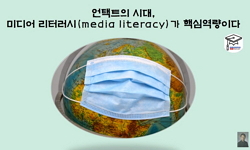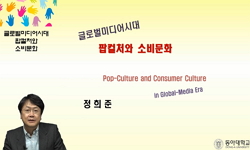현재 한국의 정서적 양극화가 심화된 원인은 무엇일까? 본 연구는 과거에 비해 최근 한국의 정서적 양극화가 심화된 원인을 미디어라 예상한다. 양극화라는 주제에 대해 이미 많은 연구가 ...
http://chineseinput.net/에서 pinyin(병음)방식으로 중국어를 변환할 수 있습니다.
변환된 중국어를 복사하여 사용하시면 됩니다.
- 中文 을 입력하시려면 zhongwen을 입력하시고 space를누르시면됩니다.
- 北京 을 입력하시려면 beijing을 입력하시고 space를 누르시면 됩니다.
https://www.riss.kr/link?id=A108663421
- 저자
- 발행기관
- 학술지명
- 권호사항
-
발행연도
2023
-
작성언어
-
-
주제어
미디어 ; 양극화 ; 정서적 양극화 ; 편향된 미디어 ; Media ; Polarization ; Affective Polarization ; Partisan Media
-
KDC
500
-
등재정보
KCI등재
-
자료형태
학술저널
-
수록면
75-84(10쪽)
- 제공처
-
0
상세조회 -
0
다운로드
부가정보
국문 초록 (Abstract)
현재 한국의 정서적 양극화가 심화된 원인은 무엇일까? 본 연구는 과거에 비해 최근 한국의 정서적 양극화가 심화된 원인을 미디어라 예상한다. 양극화라는 주제에 대해 이미 많은 연구가 진행되었지만 대다수는 이념 양극화에 집중해 왔으며 정서적 양극화 연구는 여전히 부족한 상황이다. 이에 편향된 미디어가 한국 사회를 양극화시키는지 관계를 분석하는데 연구의 목적이 있다. 전통 미디어 사용자, 뉴미디어 사용자, 전통 미디어와 뉴미디어를 모두 사용한 사람으로 분류해 미디어 사용이 주요 정당에 대한 호감도의 차이를 크게 만드는지 분석한다. 분석결과 당파성이 있는 미디어 사용자들은 편향된 미디어를 전통 미디어나 뉴미디어 각각 사용할 때보다 편향된 전통 미디어와 뉴미디어를 모두 사용할 때 주요 정당에 대한 호감도의 차이가 더욱 큰 것으로 나타났다. 본 연구의 결과는 편향된 미디어가 유권자들에게 감정적 대립인 정서적 양극화를 발생시키는 요인임을 시사한다.
다국어 초록 (Multilingual Abstract)
What deepens affective polarization in Korea? This study predicts that the media is the cause of the recent intensification of affective polarization compared to the past. Previous studies have been conducted on the subject of polarization, but most o...
What deepens affective polarization in Korea? This study predicts that the media is the cause of the recent intensification of affective polarization compared to the past. Previous studies have been conducted on the subject of polarization, but most of them have concentrated on ideological polarization, while studies on affective polarization are still lacking. Accordingly, the purpose of the study is to analyze the relationship between biased media polarizing Korean society. By classifying media users into traditional media users, new media users, and those who used both traditional and new media, it analyzes whether the use of media makes a big difference in favor of major parties. It was found that partisan media users have a greater difference in favor of major political parties when using both biased traditional media and biased new media than using only one of them. As a result, this study confirms that partisan media is a factor in affective polarization.
동일학술지(권/호) 다른 논문
-
- 한국창의정보문화학회
- 박동주 ( Dongju Park )
- 2023
- KCI등재
-
SW영재학생의 인공지능 활용 단계 분석: 창작대회 산출물을 중심으로
- 한국창의정보문화학회
- 이재호 ( Jaeho Lee )
- 2023
- KCI등재
-
서비스 디자인 수업 사례 연구: 온라인 뉴스를 통한 비판적 문제 정의
- 한국창의정보문화학회
- 원종윤 ( Jongyoun Won )
- 2023
- KCI등재
-
- 한국창의정보문화학회
- 박남훈 ( Namhun Park )
- 2023
- KCI등재





 KISS
KISS






